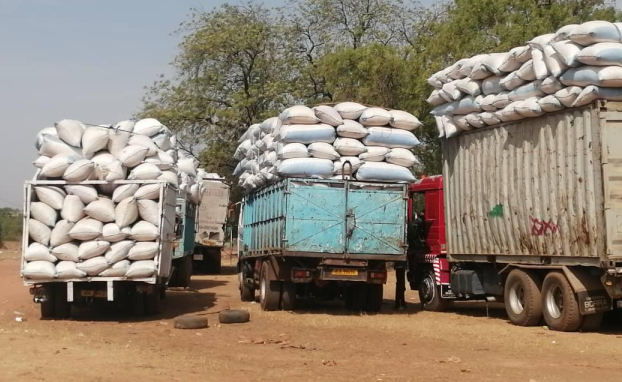By Assan Bah
The Government of The Gambia, through the National Food Security Processing and Marketing Corporation (NFSPMC), formerly known as Gambia Groundnut Corporation (GGC), has initiated a nationwide effort to settle outstanding payments owed to farmers who delivered their groundnuts during the 2025 trade season. The payments come amid widespread complaints from farmers who say they have not received any compensation from their respective seccos despite fulfilling their obligations.
In a press statement dated May 24, 2025, the NFSPMC confirmed that after a final reconciliation with the Federation of Agricultural Cooperative Societies (FACs), it had been discovered that several farmers remained unpaid, even though their groundnuts were already handed over to the seccos. The Corporation acknowledged these grievances and moved swiftly to send a joint delegation to the affected regions, starting with the Upper River Region (URR).
A team made up of officials from both NFSPMC and FACs travelled to URR on Friday to commence payments directly to individual farmers who could verify their deliveries. During the visit, the team informed farmers that the Corporation had identified a shortage of over 800 metric tons of groundnuts that were not delivered to GGC depots despite being collected at the community level.
The Corporation reassured farmers that it would honour payments for all verified deliveries. However, they made it clear that Community Produce Marketing Society (CPMS) presidents would be held accountable for the discrepancy and for the groundnuts that never reached the official depots.
“Anything we are paying will be signed by both the farmer that he received this particular amount; the secco president that he had received this amount of groundnut from the farmer, and the alkalo and FACs also signed as witnesses,” said one GGC official while addressing the gathering. The official emphasised the importance of documentation to avoid future disputes and ensure transparency.
The GGC, through its legal counsel, has already begun considering legal action against CPMS presidents who failed to deliver the collected produce. “Because we have not received all these groundnuts that we are paying for from the seccos, we will hold CPMS presidents accountable for it,” the official added. “We will pursue our money or nuts from the CPMS presidents by engaging the police and courts as advised by our lawyer.”
The news was met with cautious relief by many farmers who had been growing increasingly frustrated by the delay in payments. Some had previously protested and filed complaints through their cooperatives, alleging mismanagement and corruption at the community level.
According to the NFSPMC, the payments are intended not only to fulfil government obligations but also to restore confidence in the agricultural marketing system. By directly engaging with farmers and ensuring that each transaction is backed by witness signatures, the Corporation hopes to avoid a repeat of past shortfalls that have undermined trust between producers and processors.
While many farmers welcomed the government’s move, the deeper issue of accountability among cooperative leaders remains unresolved. Several CPMS presidents, accused of misreporting deliveries or diverting produce for personal gain, now face possible criminal charges or civil suits.
The situation also raises broader questions about oversight mechanisms in The Gambia’s agricultural sector and the structural weaknesses.
The government’s move to pay farmers directly while pursuing errant CPMS executives through legal channels signals a firmer stance on transparency and accountability in agricultural marketing. However, how quickly and thoroughly those held responsible will be brought to account remains to be seen. For now, the farmers of URR and other regions await their long-overdue payments.


















